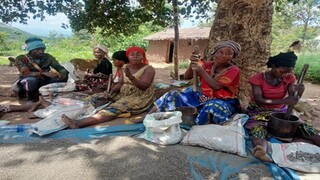ITSCI field staff are adaptive, helping to find locally appropriate solutions to incidents arising along the supply chain. A recent example of this is at Kinyinya mine site in Uvira territory, South Kivu province of the Democratic Republic of the Congo (DRC).
In December 2021, ITSCI received an anonymous tip to its whistleblower system that a new local administrator called the chef de groupement had imposed unofficial taxes on mineral production (incident number SK-2022-0002-1). When the local cooperative’s leadership refused the taxes, the incident escalated. An armed self-defence group in support of the chef de groupement entered the site, allegedly looting and leading to involvement of the Forces armées de la République démocratique du Congo (FARDC), or DRC army, and the temporary suspension of activities at the site.
Considering the risks the incident posed to the ITSCI supply chain as well as the surrounding community, ITSCI worked with the comité local de suivi (CLS – local stakeholder committee) to develop an awareness raising and risk mitigation strategy. Using lessons learned from similar disputes in the past, ITSCI field staff in Uvira drew up an acte d’engagement (engagement act). The agreement was co-authored with the Katagota CLS as a framework for conduct at the mine site for artisanal miners, SAEMAPE, cooperatives, security forces, and state authorities. The acte forbade the self-defence groups and any armed parties from entering the site, in line with OECD due diligence standards. Stakeholders also reached an agreement to distribute customary taxes collected from artisanal mining production. Finally, tools and other goods looted from the site were returned to their original owners.
In April 2022, the incident was closed as resolved, and since then production occurs smoothly at Kinyinya, with more miners participating on site. The Katagota CLS is continuing to provide support to stakeholders and address risks that arise along the supply chain.

Artisanal miners back at work at Kinyinya sub-sector in April 2022
